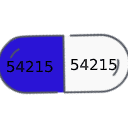Uses
Calcium acetate is used to control high blood levels of phosphorus in people with kidney disease who are on dialysis (medical treatment to clean the blood when the kidneys are not working properly). Calcium acetate is in a class of medications called phosphate binders. It binds phosphorus that you get from foods in your diet and prevents it from being absorbed into your blood stream.
Side Effects Of Calcium Acetate
Calcium acetate may cause side effects. Tell your doctor if any of these symptoms are severe or do not go away:
- nausea
- vomiting
- constipation
- loss of appetite
- itching
Some side effects can be serious. If you experience any of these symptoms, call your doctor immediately or get emergency medical treatment:
- confusion, feeling disoriented, feeling faint, or loss of consciousness
Calcium acetate may cause other side effects. Call your doctor if you have any unusual problems while taking this medication.
Warnings & Precautions
Before taking calcium acetate:
- tell your doctor and pharmacist if you are allergic to calcium acetate, any other medications, or any of the ingredients in calcium acetate preparations. Ask your pharmacist for a list of the ingredients.
- tell your doctor and pharmacist what other prescription and nonprescription medications, vitamins, nutritional supplements, and herbal products you are taking or plan to take. Be sure to mention any of the following: digoxin (Lanoxin). Take a fluoroquinolone antibiotic such as ciprofloxacin (Cipro), gemifloxacin (Factive), levofloxacin, or moxifloxacin (Avelox) at least 2 hours before or 6 hours after taking calcium acetate. Also, take levothyroxine (Euthyrox, Synthroid, Tirosint) at least 4 hours before or 4 hours after taking calcium acetate. Take a tetracycline antibiotic such as demeclocycline, doxycycline (Monodox, Oracea, Vibramcyin), minocycline (Dynacin, Minocin, Solodyn), or tetracycline (Achromycin V, in Pylera) at least 1 hour before taking calcium acetate. Your doctor may need to change the doses of your medications or monitor you carefully for side effects. Many other medications may also interact with calcium acetate, so be sure to tell your doctor about all the medications you are taking, even those that do not appear on this list.
- tell your doctor if you are taking calcium supplements or calcium antacids (Tums). Do not take supplements or antacids containing calcium while taking this medication.
- tell your doctor if you have high levels of calcium in the blood. Your doctor will probably tell you not to take calcium acetate.
- tell your doctor if you have or have ever had any other medical conditions.
- tell your doctor if you are pregnant, plan to become pregnant, or are breast-feeding. If you become pregnant while taking calcium acetate, call your doctor.
Calcium Acetate Dosage
Calcium acetate comes as a capsule, tablet, and a solution (liquid) to take by mouth. It is usually taken along with each meal (e.g., 3 times a day if you eat 3 meals a day) as directed by your doctor. Take calcium acetate at around the same times every day. Follow the directions on your prescription label carefully, and ask your doctor or pharmacist to explain any part you do not understand. Take calcium acetate exactly as directed. Do not take more or less of it or take it more often than prescribed by your doctor.
If you are using the solution, do not use a household spoon to measure your dose. Use the dosing cup that comes with the medication to measure your dose. Ask your pharmacist if you have any questions about how much medication you should take or how to use the dosing cup.
Your doctor will probably adjust your dose based on your phosphorus blood levels, not more often than once every 2 to 3 weeks.
Ask your pharmacist or doctor for a copy of the manufacturer’s information for the patient.
Other
Keep all appointments with your doctor and the laboratory. Your doctor may order certain lab tests to check your body’s response to calcium acetate.
Do not let anyone else take your medication. Ask your pharmacist any questions you have about refilling your prescription.
It is important for you to keep a written list of all of the prescription and nonprescription (over-the-counter) medicines you are taking, as well as any products such as vitamins, minerals, or other dietary supplements. You should bring this list with you each time you visit a doctor or if you are admitted to a hospital. It is also important information to carry with you in case of emergencies.
Source
All information has been provided courtesy of MedLinePlus from the National Library of Medicine and from the FDA.



